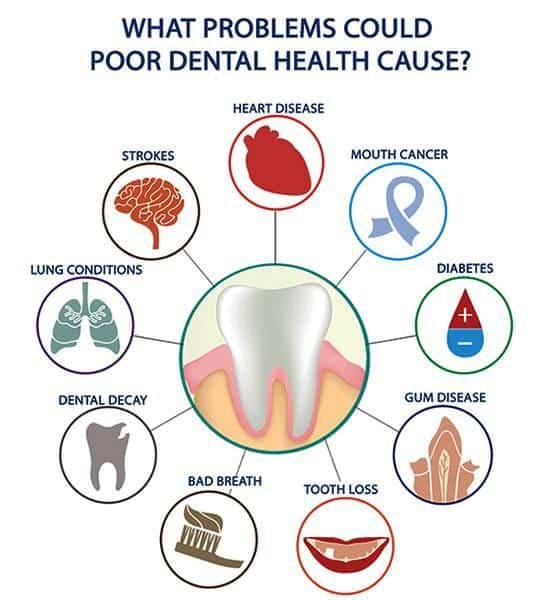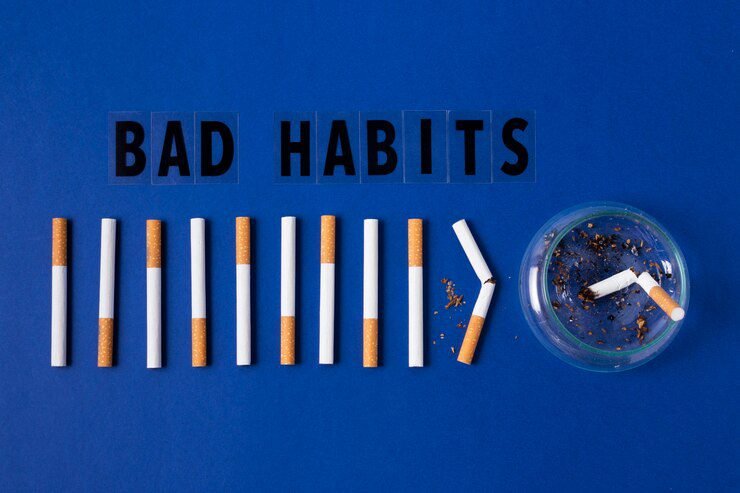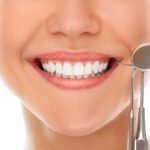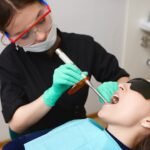Table of Contents
The Importance of Dental Hygiene for Overall Health
Maintaining good dental hygiene is not only important for a bright and beautiful smile, but it also plays a crucial role in our overall health. Oral health issues, such as gum disease and tooth decay, have been linked to various systemic conditions, including heart disease, diabetes, respiratory infections, and adverse pregnancy outcomes. As a dentist, I cannot emphasize enough the significance of practicing proper dental hygiene as part of a holistic approach to wellness.
Poor oral hygiene can lead to the buildup of harmful bacteria in the mouth, which can enter the bloodstream and potentially affect other parts of the body. For instance, research has shown that the bacteria associated with gum disease can trigger inflammation in the arteries, increasing the risk of heart disease and stroke. Additionally, untreated gum infection has been found to have negative effects on blood sugar control in individuals with diabetes.
Moreover, maintaining good dental hygiene has been shown to play a role in preventing respiratory infections. Bacteria present in the oral cavity can potentially be aspirated into the lungs, contributing to conditions such as pneumonia. This is particularly important for vulnerable populations, including seniors and individuals with compromised immune systems.
In conclusion, the importance of dental hygiene for overall health cannot be overstated. By taking proper care of our teeth and gums, we not only ensure a healthy and attractive smile but also reduce the risk of developing serious systemic conditions. It is essential to follow recommended oral hygiene practices, including regular brushing, flossing, using mouthwash, and attending routine dental check-ups, to maintain optimal oral health and promote general well-being. So let’s prioritize our dental hygiene and reap the benefits it brings to our overall health.

Understanding the Basics: How to Properly Brush Your Teeth
Brushing your teeth is one of the most fundamental and essential practices for maintaining good oral hygiene. However, it is surprising how many people neglect proper brushing techniques, leading to suboptimal dental care. To ensure that you are effectively cleaning your teeth and gums, it is crucial to follow a few simple guidelines.
Firstly, it is important to use a soft-bristled toothbrush that is suitable for your mouth size. Hard-bristled brushes may cause gum irritation and damage to the tooth enamel over time. Secondly, apply a small amount of fluoride toothpaste to your brush. Fluoride is a mineral that helps in preventing tooth decay and strengthening the enamel. Remember, a pea-sized amount is sufficient for effective cleaning.
Next, hold your toothbrush at a 45-degree angle to your gums, ensuring that the bristles are making contact with both your teeth and gums. Using short, gentle strokes, move the brush back and forth, paying equal attention to all surfaces of your teeth. Be sure to brush the outer surfaces, the inner surfaces, and the chewing surfaces. And don’t forget about your tongue – gently brush it to remove bacteria and freshen your breath. Finally, remember to replace your toothbrush every three to four months or sooner if the bristles become frayed.
Uncovering the Secrets of Effective Flossing Techniques
Flossing is an essential part of maintaining good oral hygiene, yet it is often overlooked or done improperly by many individuals. By understanding and implementing effective flossing techniques, you can greatly improve the health of your teeth and gums.
First and foremost, it is important to choose the right type of dental floss for your needs. There are various options available, such as waxed or unwaxed, flavored or unflavored, and even floss picks for added convenience. Experiment with different types to find the one that you feel most comfortable using.
When it comes to the actual flossing technique, it is crucial to be gentle yet thorough. Begin by taking a piece of floss about 18 inches long and wrap it around your middle fingers, leaving a few inches of floss to work with. Hold the floss tightly between your thumbs and forefingers and glide it gently between your teeth. Curve the floss into a C-shape against the side of each tooth and slide it up and down to remove any plaque or debris. Repeat this process for all of your teeth, including the back molars, and make sure to use a fresh section of floss for each tooth to prevent spreading bacteria.

Choosing the Right Toothbrush and Toothpaste for Optimal Dental Care
Finding the right toothbrush and toothpaste is crucial for maintaining optimal dental care. With so many options available, it can be overwhelming to choose the best products that meet your specific needs. However, understanding the key factors to consider can help you make an informed decision.
When it comes to toothbrushes, selecting the right bristle type is essential. Soft-bristled brushes are gentle on your gums and tooth enamel, making them the preferred choice for most individuals. Hard bristles can be too abrasive and may cause gum irritation or enamel wear. Additionally, consider the size and shape of the brush head. It should comfortably fit in your mouth and reach all areas, including the back teeth. Electric toothbrushes are also an excellent option, as they offer superior plaque removal and promote better oral hygiene habits.
Equally important, toothpaste plays a vital role in maintaining oral health. Look for toothpaste that contains fluoride, a mineral that strengthens tooth enamel and helps prevent tooth decay. Fluoride toothpaste is especially beneficial for individuals who are prone to cavities or have weak enamel. There are also toothpaste options designed for specific dental concerns, such as sensitivity, tartar control, or whitening. Speaking with your dentist can help determine the best toothpaste for your unique needs.
By carefully selecting the right toothbrush and toothpaste, you can ensure that your oral hygiene routine is effective in maintaining optimal dental care. Remember, regular dental check-ups and cleanings, along with consistent brushing and flossing habits, are the foundation for a healthy smile. Finding the right products to support your dental care efforts can make a significant difference in your overall oral health.
| Aspect | Toothbrush | Toothpaste |
|---|---|---|
| Bristle Type | Soft bristles are recommended for most people | Fluoride toothpaste is generally recommended |
| Size | Small head for better access to all areas of mouth | – |
| Bristle Texture | Rounded and soft for gentle cleaning | – |
| Handle Design | Comfortable grip for easy maneuverability | – |
| Special Features | Angled bristles for hard-to-reach areas | Whitening, sensitivity relief, tartar control, etc. |
| Replace Every | Every 3-4 months | – |
| ADA Seal of Approval | Look for ADA seal for quality assurance | Look for ADA seal for fluoride content and effectiveness |
The Power of Mouthwash: Enhancing Your Oral Health Routine
When it comes to maintaining optimal oral health, brushing and flossing are often the first habits that come to mind. However, incorporating mouthwash into your oral hygiene routine can provide an additional boost to your dental care efforts. Mouthwash, also known as mouth rinse, is a liquid solution specifically designed to enhance oral hygiene by killing bacteria, freshening breath, and promoting gum health. It can be a powerful tool in preventing tooth decay, gum disease, and other dental issues.
One of the primary benefits of using mouthwash is its ability to kill bacteria in the mouth. Throughout the day, harmful bacteria accumulate on the surface of teeth, gums, and the tongue, leading to plaque formation and various oral health problems. Mouthwash containing antibacterial ingredients, such as cetylpyridinium chloride or chlorhexidine, can effectively reduce the number of bacteria in the oral cavity. This can help prevent cavities, gum inflammation, and bad breath. Additionally, certain types of mouthwash contain fluoride, which can strengthen tooth enamel and protect against tooth decay. Incorporating mouthwash into your daily routine can offer an extra level of protection and give you a fresh and clean feeling that lasts throughout the day.
Exploring the Benefits of Regular Dental Check-ups and Cleanings
Regular dental check-ups and cleanings play a crucial role in maintaining good oral health. These routine visits to the dentist not only help in preventing oral diseases but also contribute to overall well-being. During a dental check-up, various aspects of oral health are assessed, including the condition of teeth, gums, and soft tissues. The dentist will thoroughly examine the mouth for any signs of cavities, gum disease, or other dental issues. They will also check for any abnormalities or changes in the oral cavity that may indicate the presence of oral cancer or other serious conditions.
In addition to the comprehensive examination, regular dental check-ups involve professional dental cleanings. Even with regular brushing and flossing, there are areas in the mouth that are difficult to reach and clean effectively. Over time, plaque and tartar can accumulate in these hard-to-reach areas, leading to tooth decay and gum disease. During a professional cleaning, the dental hygienist will meticulously remove the plaque and tartar buildup, ensuring that the teeth and gums are thoroughly cleaned.
This not only helps in preventing oral diseases but also helps in maintaining fresh breath and a bright smile. Furthermore, professional cleanings can also contribute to better overall health by reducing the risk of infections and inflammation in the mouth, which have been linked to various systemic diseases such as heart disease, diabetes, and respiratory conditions.
Maintaining a Healthy Diet for Strong Teeth and Gums
Maintaining a healthy diet is crucial for achieving strong teeth and gums. The foods we consume have a direct impact on our oral health, as certain nutrients are essential for the overall strength and maintenance of our teeth and gums.
One key nutrient that plays a vital role in dental health is calcium. Calcium contributes to the development and strength of teeth, and it can be found in foods such as milk, cheese, yogurt, and fortified plant-based alternatives. Incorporating these calcium-rich foods into your diet can help fortify your teeth, making them less susceptible to decay and other dental issues.
Additionally, vitamin C is another important nutrient for maintaining healthy gums. It aids in collagen production, which is necessary for healthy gum tissue. Citrus fruits, strawberries, and leafy greens are all excellent sources of vitamin C. Including these foods in your diet can help prevent gum disease and promote overall gum health.
In summary, a diet rich in calcium and vitamin C can significantly contribute to strong teeth and healthy gums. By incorporating these nutrient-dense foods into your daily meals, you can support your overall dental health and reduce the risk of oral health problems.
The Surprising Effects of Stress on Dental Health and How to Manage it
Stress is a common factor in our daily lives, affecting various aspects of our health. However, you may be surprised to learn that stress can also have significant effects on your dental health. When our bodies are under stress, our immune system weakens, making us more susceptible to oral health problems.
One surprising effect of stress on dental health is an increased risk of gum disease. Elevated levels of stress hormones can lead to inflammation in the gums, making it easier for bacteria to invade and cause gum disease. Additionally, stress may contribute to decreased saliva production, which plays a vital role in protecting our teeth and gums from harmful bacteria.
Managing stress is crucial for maintaining good oral health. While it may be impossible to completely eliminate stress from our lives, there are strategies we can implement to minimize its impact. Regular exercise, practicing relaxation techniques such as deep breathing or meditation, and seeking support from loved ones or professionals can all contribute to stress reduction. By taking steps to manage stress effectively, we can help protect our dental health and overall well-being.
Breaking Bad Habits: Avoiding Tobacco and Limiting Alcohol Consumption
Tobacco use and excessive alcohol consumption are detrimental to both oral health and overall well-being. The harmful effects of these habits on the teeth and gums are well-documented, and it is important to understand the risks associated with them. Tobacco products, including cigarettes, chewing tobacco, and cigars, contain numerous chemicals that can wreak havoc on oral tissues. These chemicals not only stain teeth and contribute to bad breath, but they also increase the risk of gum disease, tooth decay, and even oral cancer.
Alcohol, when consumed excessively, can have similar negative effects on oral health. Alcoholic beverages are often acidic, which can erode tooth enamel and make teeth more susceptible to decay. Additionally, excessive alcohol consumption can impair saliva production, leading to a dry mouth. Saliva plays a crucial role in maintaining oral health by neutralizing acids, washing away food debris, and preventing bacterial growth. When saliva production is compromised, the risk of cavities and gum disease increases. Furthermore, alcohol abuse has been shown to increase the likelihood of developing oral cancer.
It is clear that breaking the habits of tobacco use and limiting alcohol consumption can have significant benefits for oral health. By avoiding tobacco products altogether and adopting healthier alternatives, such as nicotine replacement therapy, individuals can greatly reduce their risk of oral health issues. Similarly, practicing moderation when it comes to alcohol consumption and choosing less acidic beverages can help maintain a healthy oral environment. It is important to seek professional help and support if necessary, as breaking these habits can be challenging. By making a commitment to oral health and overall well-being, individuals can pave the way for a healthier future.

Protecting Your Teeth from Damage: Tips for Preventing Dental Injuries
Preventing dental injuries is crucial for protecting the health and integrity of your teeth. By taking steps to reduce the risk of accidents and trauma, you can maintain a bright and healthy smile. One important tip for preventing dental injuries is to always wear a mouthguard during sports or recreational activities that involve contact or the risk of falls. Mouthguards create a protective barrier between the teeth and soft tissues of the mouth, reducing the likelihood of fractures, lacerations, and other injuries. Whether you participate in high-impact sports like football or prefer activities such as skateboarding or skiing, wearing a properly fitted mouthguard can provide an extra layer of defense for your teeth.
Another effective way to prevent dental injuries is to avoid habits that can put your teeth at risk. For example, chewing on ice, pens, or other hard objects can increase the chances of tooth fractures or chips. Opening packages or bottles with your teeth is also a behavior that should be avoided, as it can lead to dental damage. Additionally, practicing good oral hygiene by brushing and flossing daily is crucial for maintaining strong teeth and gums. Neglecting oral hygiene can result in tooth decay or gum disease, which can weaken the teeth and increase the likelihood of injuries.
By following these tips and being mindful of your oral health, you can significantly reduce the risk of dental injuries and ensure the long-term health of your smile.
The Link Between Dental Health and Chronic Diseases: What You Need to Know
Maintaining proper dental health goes beyond just having a pretty smile. It is now widely recognized that there is a strong link between dental health and chronic diseases. Studies have shown that poor oral hygiene and untreated dental problems can contribute to the development of various systemic conditions, such as cardiovascular disease, diabetes, respiratory infections, and even certain types of cancer.
One of the key factors that connects dental health to chronic diseases is inflammation. Inflammation in the gums, known as periodontitis, can release harmful bacteria and inflammatory markers into the bloodstream, promoting inflammation in other parts of the body. This chronic inflammation can have detrimental effects on overall health and increase the risk of chronic diseases. Additionally, oral bacteria may also directly contribute to the development of certain conditions, such as cardiovascular disease, by promoting the formation of plaques in the arteries.
It is crucial to recognize the importance of maintaining good dental hygiene not only for a healthy smile but also for overall well-being. By brushing and flossing regularly, attending regular dental check-ups, and addressing dental problems promptly, you can significantly reduce the risk of chronic diseases and enjoy better overall health. So, take charge of your dental health and reap the benefits of a healthy body.
Natural Remedies for Fresh Breath and Overall Oral Care
Did you know that fresh breath not only enhances your oral hygiene, but also impacts your overall health and confidence? While there are many commercial products available to combat bad breath, natural remedies can provide effective and long-lasting results. One such remedy is oil pulling, an ancient technique that involves swishing oil, such as coconut or sesame oil, in your mouth for several minutes. This practice helps to eliminate bacteria, reduce plaque buildup, and freshen your breath. Another natural remedy is chewing on fresh herbs, like parsley or mint leaves, which contain chlorophyll that helps neutralize odors and freshen your breath. Incorporating these natural remedies into your daily oral care routine can help you achieve lasting freshness.
In addition to fresh breath, overall oral care is essential to maintain healthy teeth and gums. A popular natural remedy for oral care is saltwater rinse. This simple solution is known for its antiseptic properties, helping to reduce inflammation, kill bacteria, and promote healing in the gums. To prepare a saltwater rinse, dissolve half a teaspoon of salt in warm water and swish it around in your mouth for about 30 seconds before spitting it out.
Another effective natural remedy is baking soda. Its mildly abrasive nature helps to remove stains and plaque from teeth, while its alkaline properties neutralize acids in the mouth, preventing tooth decay. You can create a paste by mixing baking soda with water and gently brushing your teeth with it. By incorporating these natural remedies into your oral care routine, you can promote oral health and enjoy the benefits of a sparkling smile.
| Natural Remedies | Benefits/Usage |
|---|---|
| Oil pulling with | Removes bacteria and toxins from mouth, |
| coconut or sesame oil | promotes oral health, and freshens breath. |
| Baking soda | Neutralizes acids, reduces bacteria, and whitens |
| teeth. Use as toothpaste or mouthwash. | |
| Apple cider vinegar | Helps kill bacteria in the mouth and removes stains |
| from teeth. Dilute with water and use as a mouthwash. | |
| Peppermint oil | Has antimicrobial properties and freshens breath. |
| Add a drop to your toothpaste or mouthwash. | |
| Clove | Contains eugenol, which has analgesic and |
| antibacterial properties. Chew on a clove or use | |
| clove oil for toothache relief and fresh breath. | |
| Tea tree oil | Fights bacteria and reduces inflammation. Mix a few |
| drops with water and use as a mouthwash. | |
| Fresh fruits and | Crunchy fruits like apples and carrots stimulate |
| vegetables | saliva production, helping to clean teeth naturally. |
| Chew on them after meals for fresh breath. |
Building Healthy Habits: Establishing a Consistent Dental Hygiene Routine
Establishing a consistent dental hygiene routine is essential for maintaining optimal oral health. By incorporating daily practices such as brushing and flossing into your routine, you can prevent the buildup of plaque and tartar, reduce the risk of gum disease, and maintain a healthy smile.
Brushing your teeth at least twice a day is the foundation of a good dental hygiene routine. Using a soft-bristled toothbrush and a fluoridated toothpaste, gently brush all surfaces of your teeth for two minutes. Be sure to pay extra attention to the gumline and the back teeth, as these areas are often prone to plaque accumulation. Additionally, don’t forget to replace your toothbrush every three to four months or sooner if the bristles become frayed.
In addition to regular brushing, flossing is an integral part of maintaining oral hygiene. Flossing helps remove food particles and plaque that can accumulate between the teeth and along the germline, areas that are often missed by brushing alone. To floss effectively, use a piece of floss about 18 inches long and wrap it around your middle fingers, leaving a few inches of floss between them. Gently insert the floss between each tooth, curving it around the base of the tooth and moving it up and down to remove any debris.
How often should I brush my teeth?
It is recommended to brush your teeth at least twice a day, preferably after meals.
How long should I brush my teeth for?
Is it necessary to floss every day?
Yes, flossing is an essential part of maintaining good dental hygiene. It helps remove plaque and food particles from between the teeth and along the gumline.
What type of toothbrush should I use?
It is best to choose a toothbrush with soft bristles and a small head. Electric toothbrushes can also be effective in removing plaque.
What kind of toothpaste should I use?
Look for toothpaste that contains fluoride and has the American Dental Association (ADA) seal of approval.
How often should I use mouthwash?
Mouthwash can be used once or twice a day, after brushing and flossing, to further reduce bacteria in the mouth and freshen breath.
How often should I go for dental check-ups and cleanings?
It is recommended to visit your dentist for a check-up and cleaning every six months, or as advised by your dentist.
Can stress affect dental health?
Yes, stress can contribute to teeth grinding, jaw clenching, and can weaken the immune system, making it harder for the body to fight off gum disease and other dental problems.
Are tobacco and alcohol harmful to dental health?
Yes, tobacco use and excessive alcohol consumption can increase the risk of gum disease, tooth decay, oral cancer, and other dental problems.
How can I prevent dental injuries?
Avoid chewing on hard objects, wear a mouthguard during sports activities, and practice good oral hygiene to maintain strong teeth and gums.
Are there any links between dental health and chronic diseases?
Yes, poor dental health has been linked to various chronic diseases such as heart disease, diabetes, and respiratory infections.
Are there any natural remedies for fresh breath?
Yes, chewing sugar-free gum, using natural mouthwashes, and maintaining good oral hygiene can help freshen breath.




